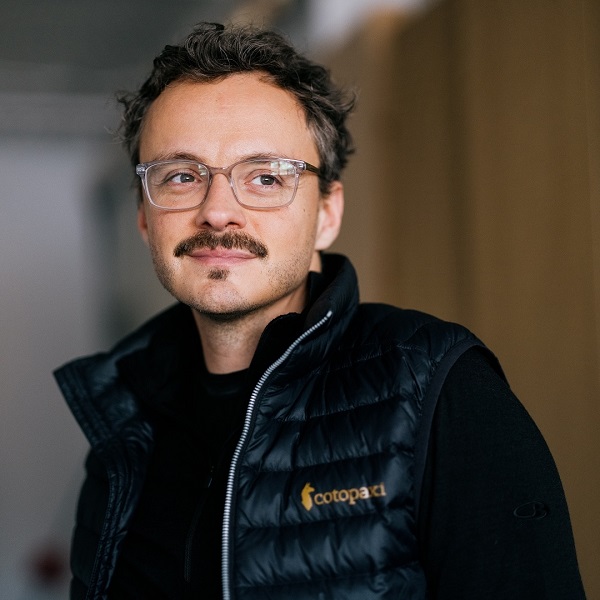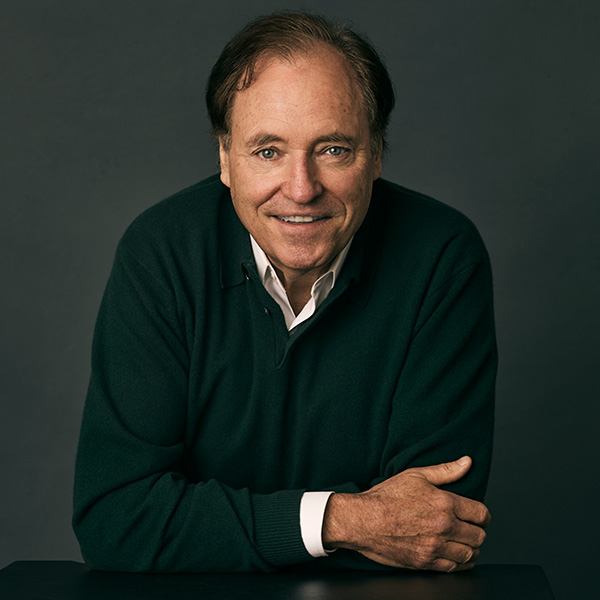When David Gaucher, BEng’06, was working as vice president of operations at an organic meat processor, he walked into a chicken slaughterhouse and his life irrevocably shifted. “I was seeing how the plant was killing of thousands of birds an hour and… everyone was trying to figure out how to optimize it all so the company could kill animals even faster, and it was then that I realized I didn’t want to do this any longer,” says Gaucher in an interview from his Toronto home.
The meat eater-turned-vegetarian decided to leave his job. In 2017, with Jonathan Bonnell as his partner, he co-founded and launched Wholly Veggie, a frozen food brand focused on a line of plant-based appetizers and entrées inspired by popular restaurant dishes. One of their top-selling items is cauliflower “wings,” featuring cauliflower bits par-fried in a panko crust and paired with ranch or Buffalo sauce. Other Wholly Veggie offerings include a range of cauliflower hash browns, sweet potato nuggets and vegan-cheese sticks.
Business has been booming for Gaucher and Bonnell. Revenue growth over the years has grown by 397%, and Fast Company magazine included Wholly Veggie in its 2023 Brands That Matter list. More than 6,000 stores in the US and Canada carry Wholly Veggie products, including Walmart, Costco and Whole Foods.
The surge of vegetarian frozen food products might sound familiar to those who saw the meatless market soar in the past decade, thanks to major players such as Impossible and Beyond. But Gaucher, the co-CEO of Wholly Veggie, says his company has a different mission than those brands.
“Our goal is not to replace meat but encourage people to eat more veggies and to make that experience fun and tasty,” he says.
If any vegetable dominates the Wholly Veggie product line, it’s cauliflower. But why?
“Cauliflower is having a moment now, even though it used to be shunned a while back,” Gaucher says. “When we approach innovation as a company, we do a lot of trend-spotting and we noticed how cauliflower has been popping up on a lot of restaurant menus.”
Gaucher believes his McGill civil engineering degree gave him a useful leg-up when he began his own startup. “Engineering is all about constantly solving problems through a specific lens of quantifying and measuring and resolving those challenges, and that’s what I do every day at Wholly Veggie, so having that mindset back at McGill has been a huge help to me today,” Gaucher says.
After he graduated, he dabbled as a project engineer with municipal projects in Laval and then worked on one of his father’s real estate projects, a condo-hotel resort in Mexico, that saw him gain valuable experience in managing day-to-day operations of the site.
He moved to Toronto in 2013 when he secured a new job working as VP of operations for the organic meat manufacturer he eventually left. A few years into that job, Gaucher heard about the boom of meat-alternative companies promoted by celebrities such as Beyoncé and Leonard DiCaprio “and I thought it was all interesting and I drove to Buffalo and bought all the meat alternative products I could, since Canada didn’t have that much at the time, and I thought, ‘Whoa, they taste so awful and bland, and why do they look all grey?’”
Then he stepped into a slaughterhouse, the acrid smell overwhelming him, and that light-bulb moment ignited his motivation to get out of the organic meat business and into a field more in line with his values.
“The genesis of the company was that if we can get people eating more veggies, and maybe get a meat guy to eat a cauliflower wing, then that was a win,” Gaucher says.
Wholly Veggie, based in Toronto, began with a meatless patty made with spinach, broccoli, and green beans, as well as cauliflower-crust pizza, but they didn’t take off with the momentum the Wholly Veggie team had hoped for. But when they introduced their cauliflower wings line, the rocketing sales encouraged them to focus more on appetizers than entrees, which has helped them secure an impressive foothold in the meatless product industry.
The company puts an emphasis on natural ingredients and simple seasonings and eschews artificial flavouring.
“What I find fulfilling is taking pride in doing something that is inspiring, and running a company that people can feel positive in supporting, whether as employees or customers,” says Gaucher.


